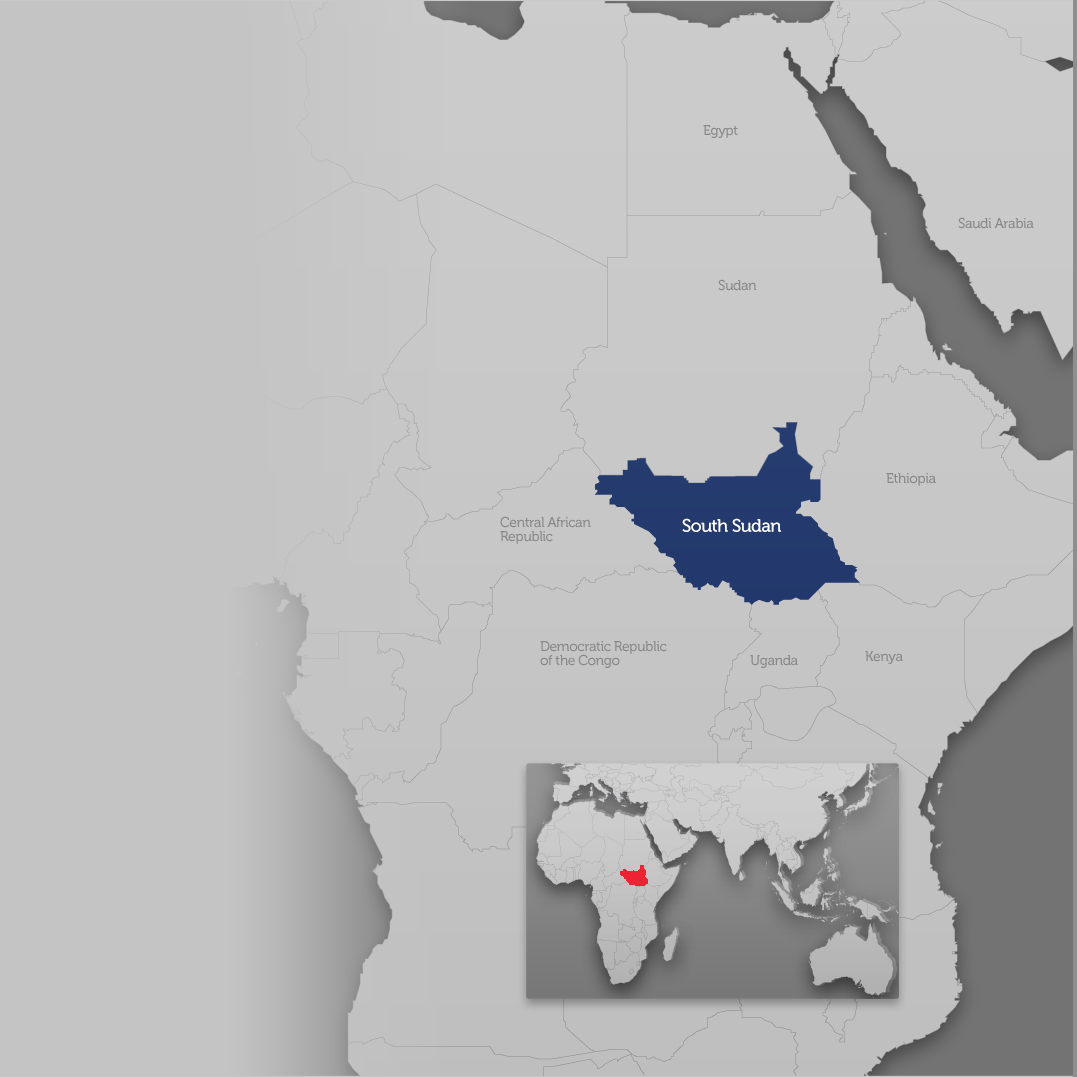
South Sudan is still recovering from more than two decades of civil war, which broke out in 1983 and lasted until the signing of the Comprehensive Peace Agreement (CPA) in 2005 between the Khartoum Government and the Sudan People’s Liberation Army (SPLA). Most of the health training institutes and health facilities in South Sudan were destroyed during the war hence worsening the health situation and health indicators in the country. South Sudan finally became an independent and recognized country on July 9, 2011. In mid-December of 2013, the current conflict South Sudan is experiencing began and has resulted in hundreds of thousands of refugees and internally displaced, famine, and epidemics of infectious diseases. Since the signing of the Comprehensive Peace Agreement (CPA), South Sudan has struggled to provide efficient and quality health care to its population. Because not enough time from independence to the current situation has passed, little significant infrastructure in the health care system was established. In fact, since the signing of the CPA, most of the health facilities and institutions in South Sudan have been supported by local/international NGOs, Church-Based Missions and United Nations Agencies, most of who have left since the recent conflict began.
Juba Teaching Hospital is the only national referral hospital in the whole country. With an estimated population of 9.86 million basing on annual population growth of 3% from a population census conducted in 2008 and lack of proper functioning primary health care facilities upcountry, many South Sudanese have nowhere to go to but this national referral hospital. Military and police hospitals, if any, are non-functional country wide, forcing soldiers and officers to share the limited facilities with civilians.
South Sudan also needs more than a standard hospital facility in the modern sense. It needs an investment in the empowerment of the people, the ability to overhaul the current system, and to be able to promote peace and human rights from within the most important institution of the nation, its health facilities. Allowing South Sudan to create a health infrastructure that sets an example for all of sub-Saharan Africa will show the world that it has the ability to ‘liberate human potential’ and has a place at the global stakeholders’ table. This project is not just one intended to deliver much-needed health care to some of the world’s most vulnerable people, but it is also an opportunity to promote peace and resolution through positive governance in a concrete way. It is a chance to help build a nation, a continent, a planet, that is based on the underlying belief that all humans deserve the right to the high quality care that science now can allow mankind to deliver. It is not just about healing the human body, but about the human spirit as well.
With this project, RMF aims to combine several of our foundation concepts as we continue on the path towards creating a Center of Excellence in Juba to serve the entire nation of South Sudan. This will not only change the course of healthcare for an entire country, but it is our humblest hope that South Sudan will lead the way in social equality and justice through healthcare by serving a success story for the global setting.
The 6 core components of this vision are:
- mHealth Tools to support health workers
- Respectful Health Care as the foundation of all service delivery
- A Center of Excellence at Juba Teaching Hospital
- Data Collection that delivers indicators, priorities, progress, and disparities
- Supply Chain Management to identify and fill needs
- National Health Worker Training Hub in order to expand and maintain the workforce
Please see the full PDF report for additional information about the project.
Background
In addition to funding for a full-time physician, Health eVillages, which provides iPods®, iPads® and other handheld devices equipped with specialized references and clinical decision support tools to medical professionals, will deliver 30-50 mobile devices pre-loaded with clinical content each year to nursing graduates. Having this best-practice clinical information available at the point of care will help overtaxed medical personnel deliver high-quality patient care as effectively as possible in a challenging clinical environment.
More Reports on: Health eVillages Technology in Healthcare Program Archive
Country Page: South Sudan
Initiative Page: Health eVillages Technology in Healthcare Program
